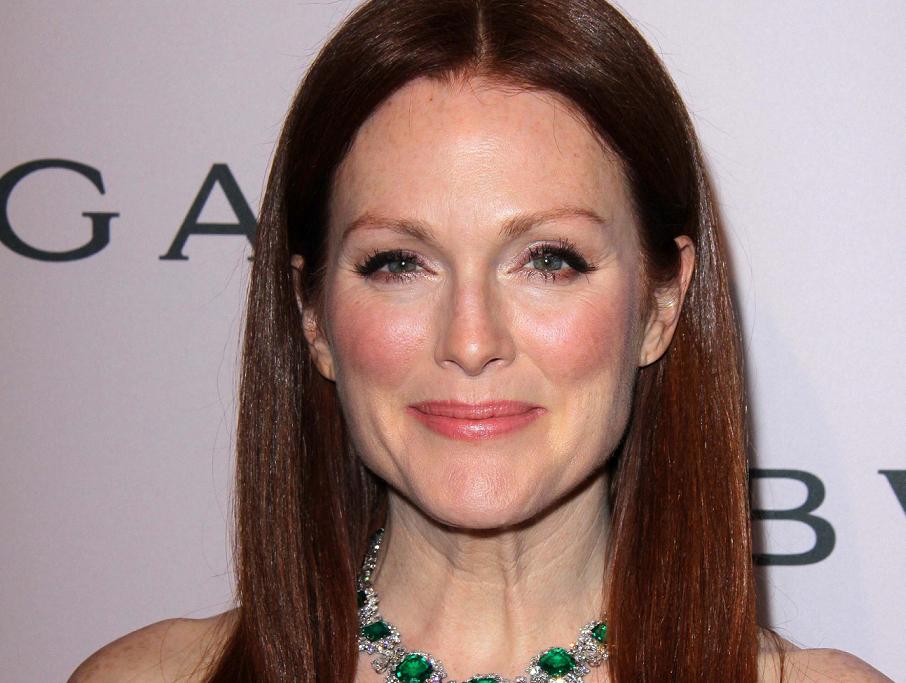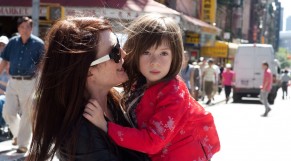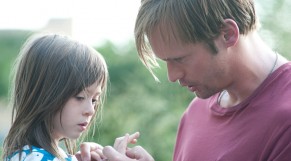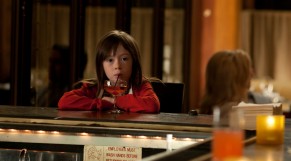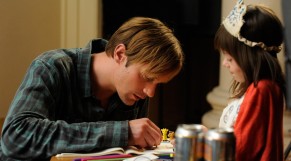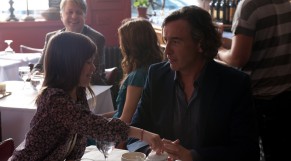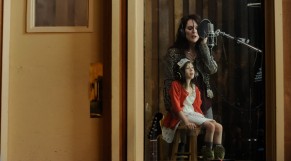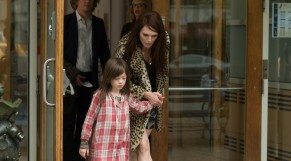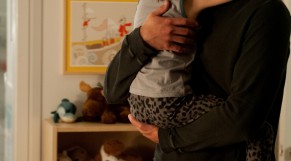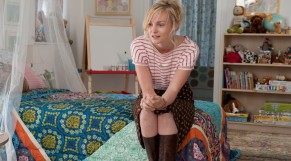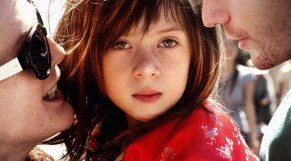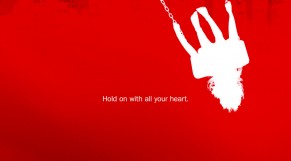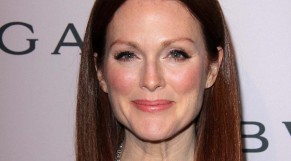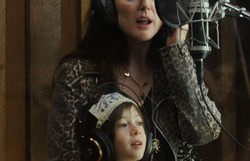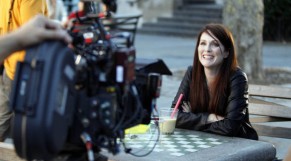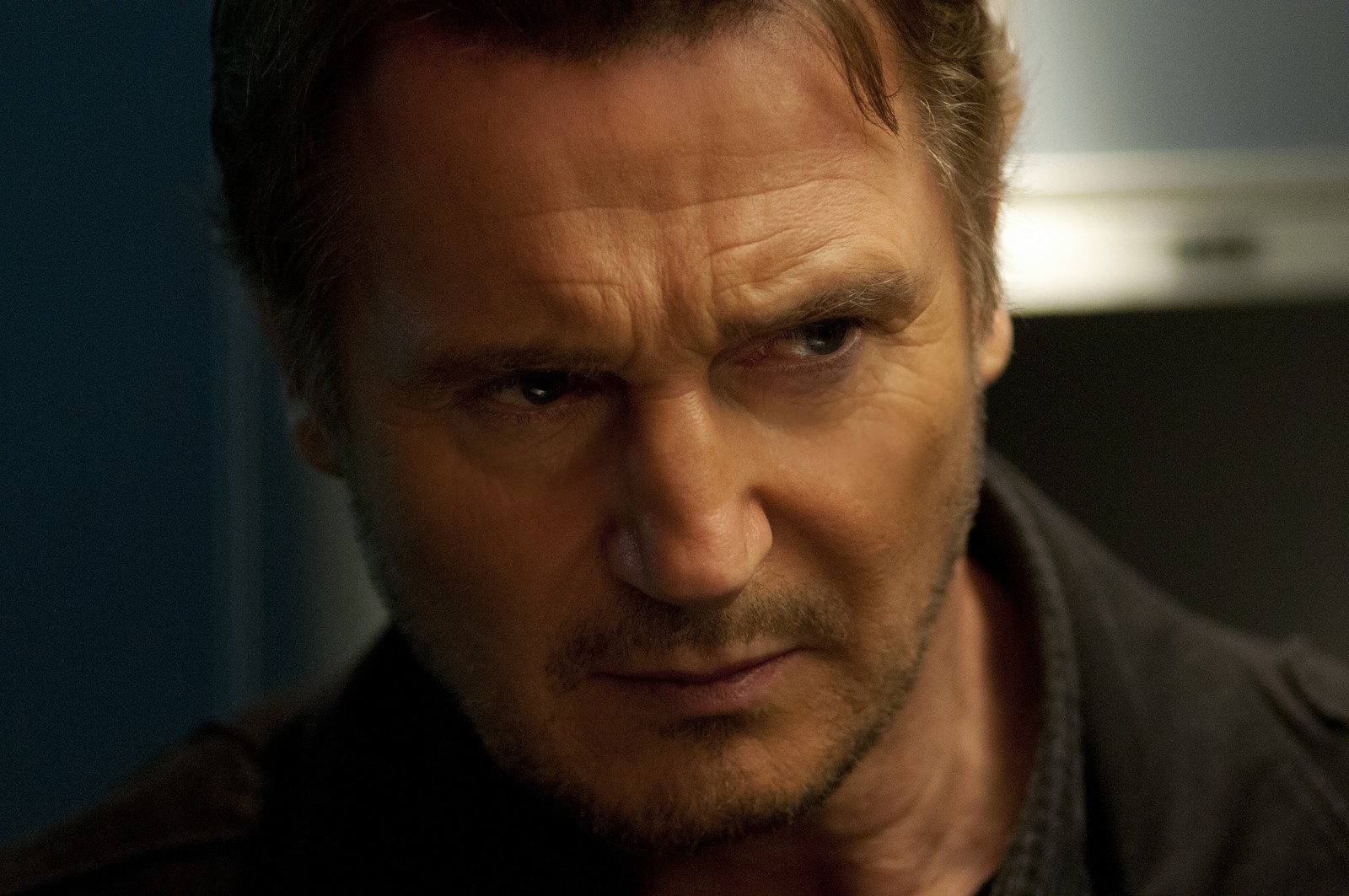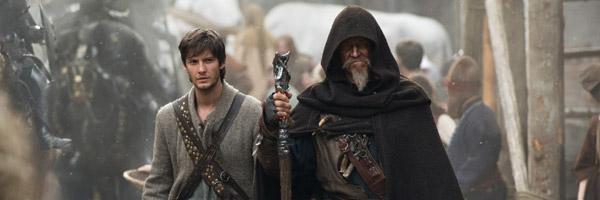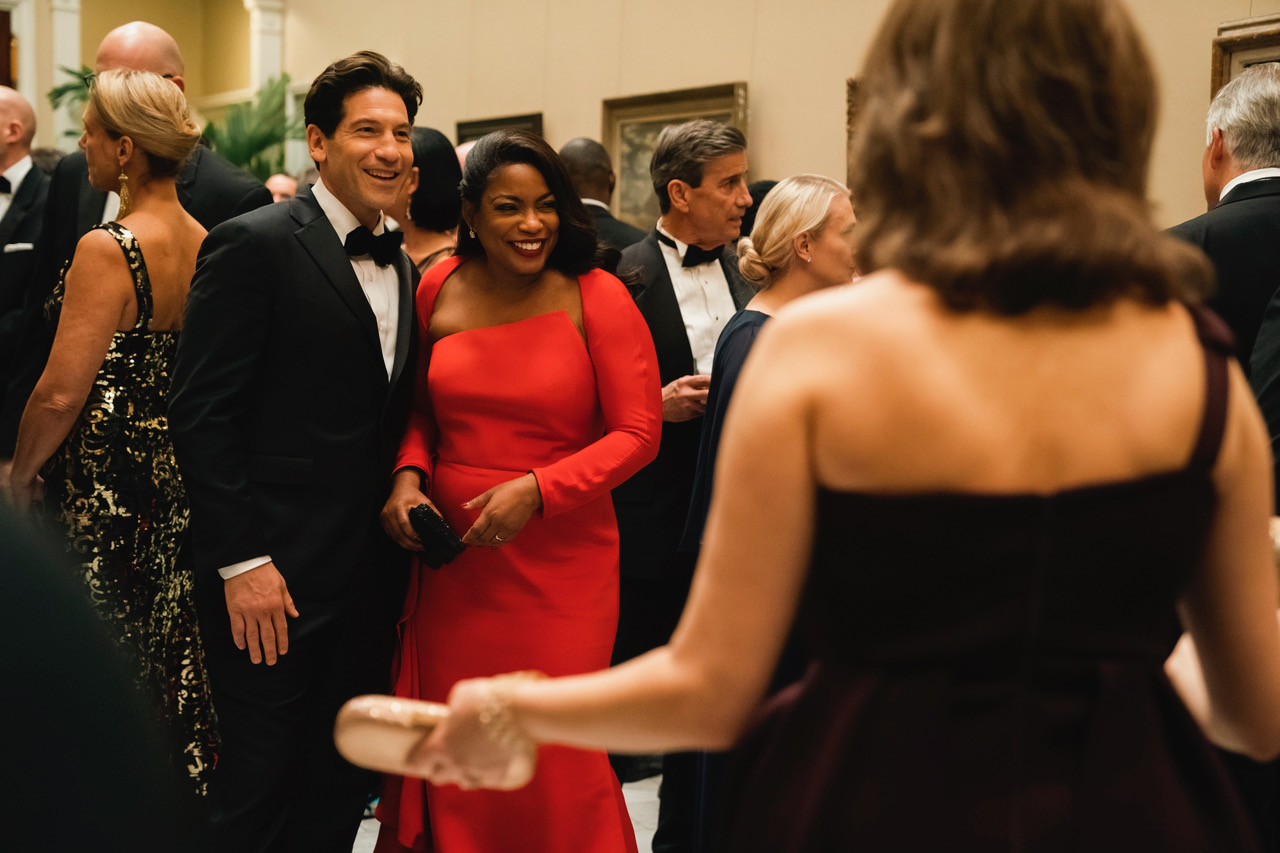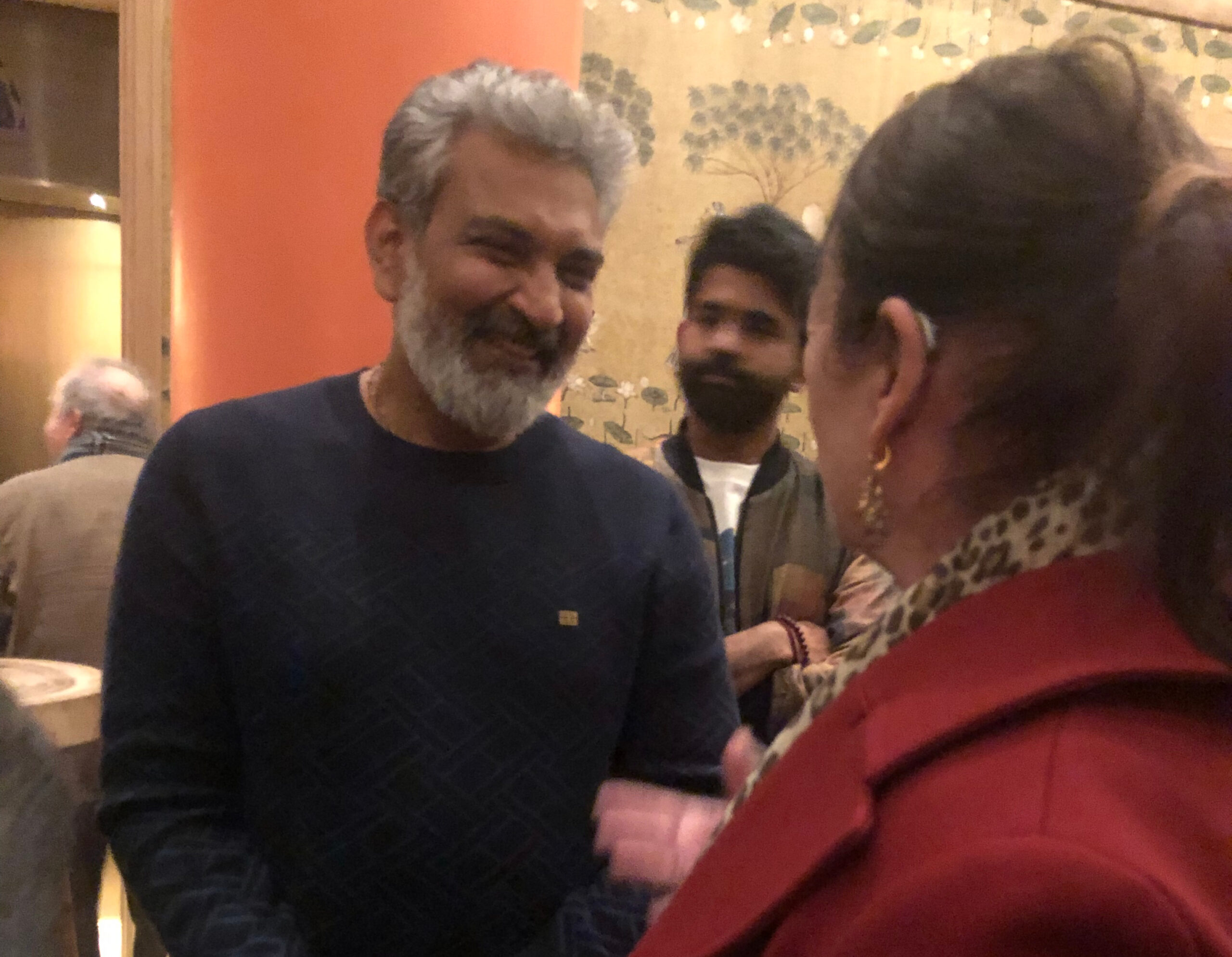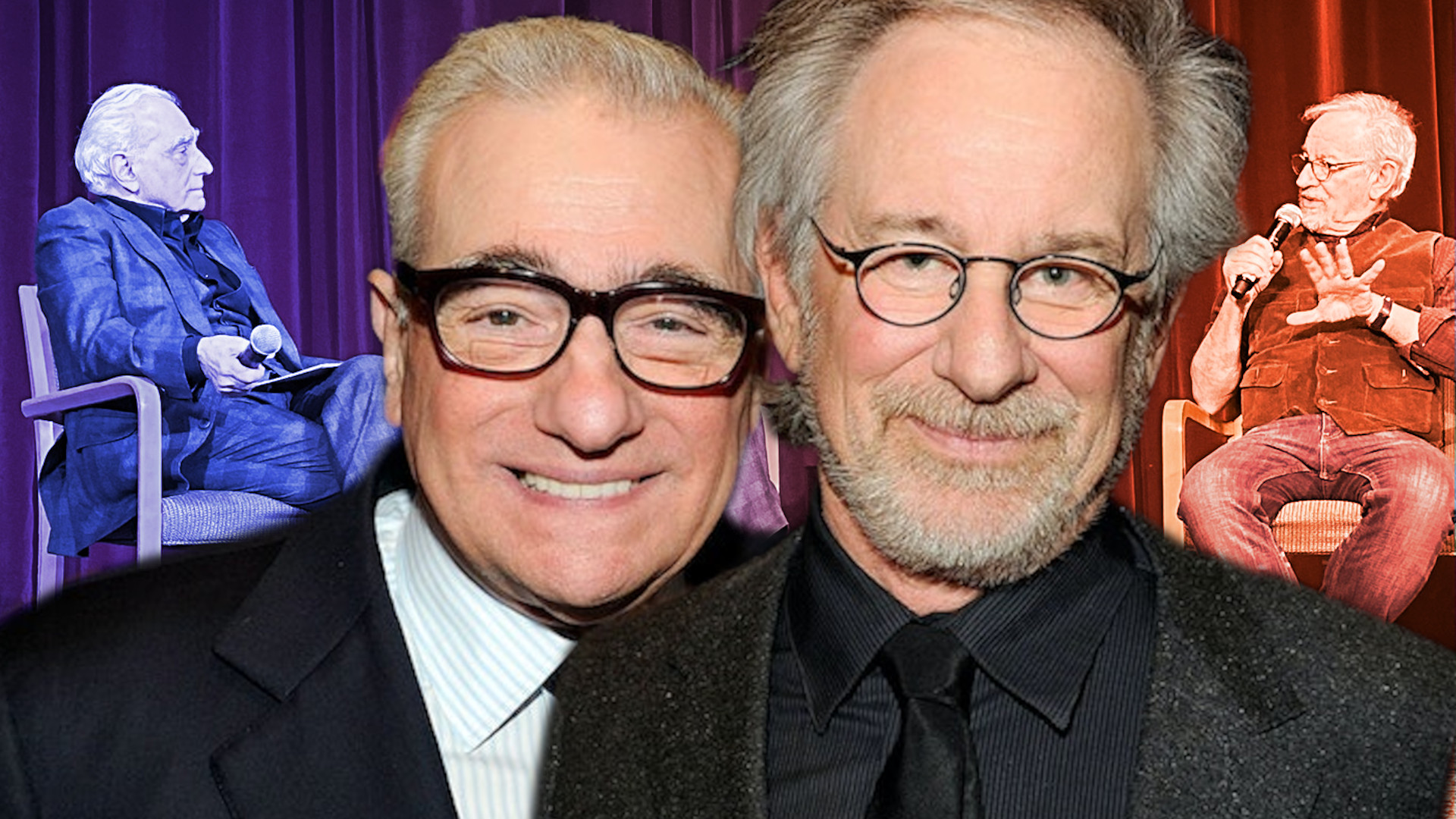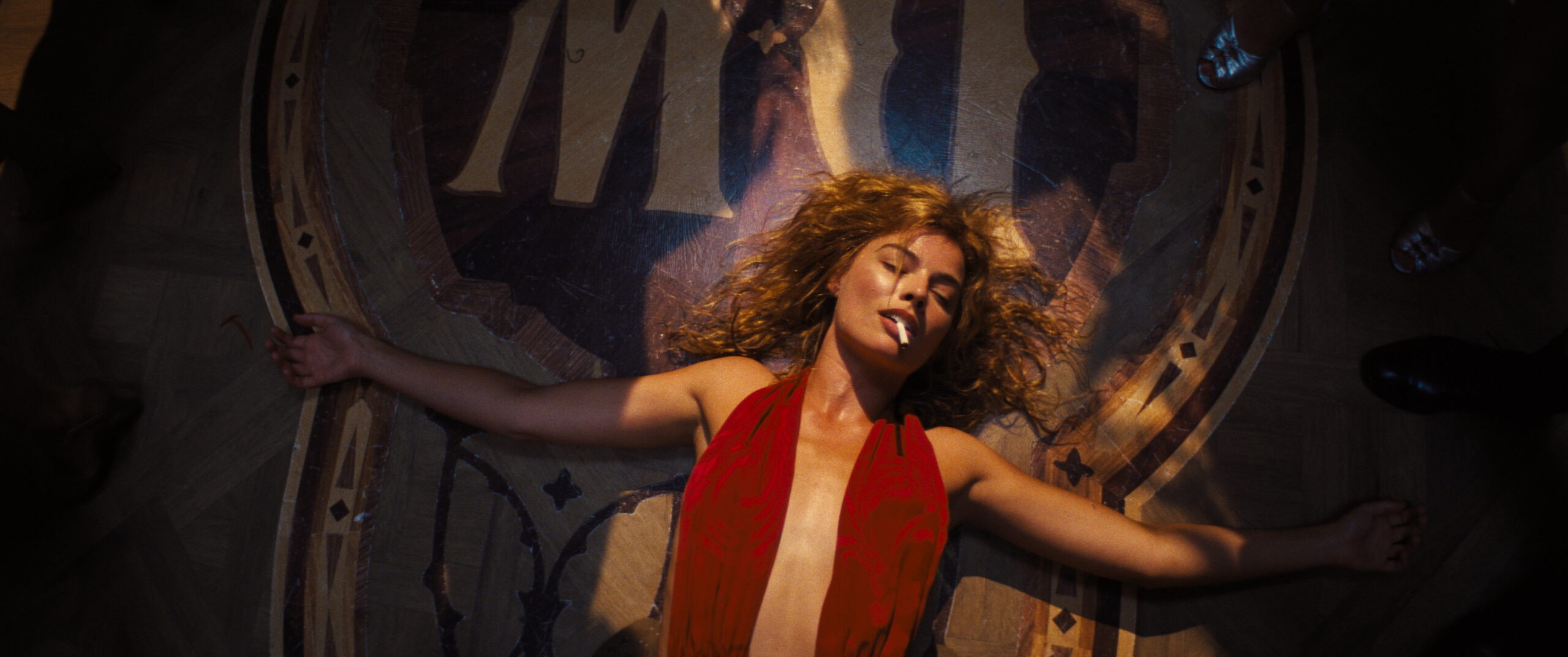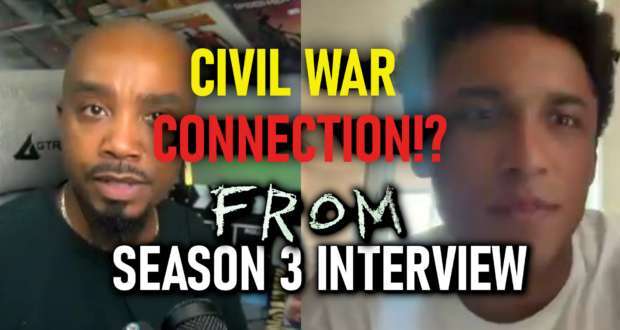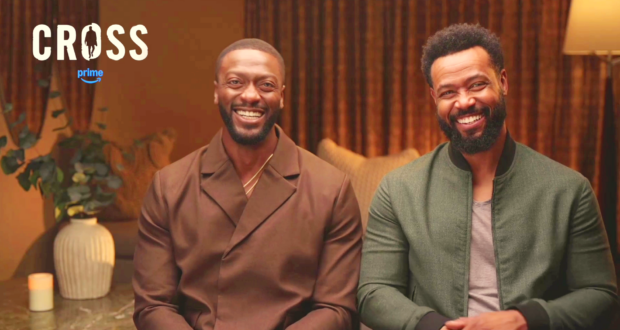Julianne Moore stars in “What Maisie Knew,” a drama directed by Scott McGehee and David Siegel (“Uncertainty,” “The Deep End”) about a six-year-old caught in the middle of a bitter custody dispute between a narcissistic rock star (Moore), and her jerky ex-husband (Steven Coogan), an art dealer who disappears on business trips months at a time. Loosely based on the book by Henry James, it is about selfish and wealthy people who use their daughter as a pawn in their bitter battle. The story is modern and still shocks because Maisie’s parents seem to detest each other more than they love their daughter.
(Later the parents take up with inappropriate younger partners played by Alexander Skarsgard and Joanna Vanderham, who take care of Maisie, played by an irresistible Onata Aprile.)
Moore has played a whole line of terrible mothers. “Maisie” may be the warm up for her role as the most diabolical of all film mothers in the remake of “Carrie,” by “Boys Don’t Cry” director Kimberly Pierce, which will come out later this year. The busy Academy-Award nominated actress also recently wrapped production opposite her “The Big Lebowski” co-star Jeff Bridges in Sergey Bodrov’s horror film “The Seventh Son” and completed shooting opposite Joseph Gordon-Levitt in his feature directing debut “Don’s Jon’s Addiction.” Also coming out soon, “The English Teacher,” which co-stars Michael Angarano, Lily Collins and Greg Kinnear
Last week Moore was at a press junket in Soho to talk about “What Maisie Knew,” the process of working with a six-year-old actress, how she liked pretending she was a rock star and why she won’t be doing karaoke anytime soon.
Here are edited highlights from the interview:

This is the first time that you’ve played a singer, and this is an edgy rock singer as well. What inspirations did you draw from?
JM: Patti definitely, I listened to a lot of Patti Smith. Probably the three that I looked at the most were Patti Smith, Courtney Love and Alison Mosshart (The Kills). I looked at a lot of whole footage of Courtney Love’s stuff and then listened to Patti and Alison – The Kills gave us those songs – and she’s the coolest girl in the world and so kind and was so encouraging, really nicer than she needed to be about me singing her songs. (laughed). I love her look.
Did you actually film in front of a live audience?
Well about four people deep. We had nobody there. It was interesting, and we actually shot that video part after I had already shot “English Teacher” so I shot ‘Maisie’, ‘English Teacher’ and then I had to come back and do the video thing. They only had 10 extras because they couldn’t afford anything else, so we just moved them around according to the shot and made them look like there was an audience.
Were you comfortable on stage?
Oh no! It feels embarrassing. It’s hard to do. It’s certainly not something that comes naturally to me. Pete, who is our sound guy, he was so great and so encouraging and when I did stuff, he would say – “Oh I like that move, I like this move” – he was incredibly helpful to me because he knows musicians and music and he didn’t make me feel like an idiot. He was great.
So you’re not a karaoke girl?
No! My daughter, who’s 11, said to me the other day said that we should all do family karaoke and I was like I’d rather die. I don’t understand karaoke. It seems so scary to me.
You’ve played so many wonderful, challenging and varied roles in your career. Was there an element of something totally new that intrigued you about this film?

Certainly the musician part. That was really challenging. I don’t play the guitar. I had to learn those three chords to play “Rockabye Baby” and how to sing and all that kind of business and I’m not inherently that cool so it was a real stretch for me. That was interesting. I love the story and I like the idea that this person was not able to parent even though she thought she had the desire to do it, she didn’t have the ability to do it. I had to face that at the end of the movie. My favorite line, and one that’s the most painful too, is – “You know who your mother is right?” – because she knows that is all that she’s able to offer that child but she is her mother and she does love her but she’s not gonna be able to parent her and it’s awful.
Did you think that at the end, when you came back from the tour, would have fought to get Maisie back?
No because she doesn’t want to, clearly. That’s what’s sad. I think she feels like she feels like she’s off the hook. That’s what is so sad about it. She knows that she’s not a good parent. She’s a musician. That’s all she wants. That’s how she communicates with the world. She doesn’t have a relationship with her child, with her husband, with her boyfriend. She has it with her music. She loves this girl and knows that she should take care of her but she’s not able to. The horrible thing is, she realizes that she is a bad mother and she’s never going to be a good one and probably the best thing for her to do is to let someone else care for her. It’s awful. It’s terrible.
What was the process of working with such a young actress?
Well she’s so easy. She’s a delightful, delightful girl. She’s really bright. She’s very curious. She’s trusting and loving. She seems to really like to do this. I didn’t feel like this was a child there under duress, she wanted to be there. As a parent, I would say to her – “We’re going to do this scene and I want to let you know that I’m going to yell really loud at the end and probably slam the door, don’t be scared. I may start to cry in this scene but it’s not real. Don’t worry” – this one time I cried in a scene, and she said – “You really cried” – and I was like – “I told you I was going to cry.” I’d tell her that I was going to pick her up and twirl her around and hug you and kiss you and she’d say — “Ok” — I just wanted to make sure that she always felt safe, she always knew what I was going to do, she was prepared as a kid and as an actor. We knew what world we were working in. She’s terrific. She’s a really good girl. And has a lovely mother.
Have any roles been hard to loose after the filming?
No. I don’t like to take it. I can’t. I have two kids. I don’t have time to sit and wallow in it, nor do I want to. My husband says I’m really good at compartmentalizing and I think I am. That’s work stuff and this is home stuff. I think you can choose to sit around in it, but it wouldn’t be tolerable to my children or me.
As a mother yourself, did it make it even more challenging to play this woman who is so neglectful?
Because I’m pretty compartmentalized, I know that that’s not me. My biggest concern was to make sure for Onata to feel safe and know that we were pretending. My kids made a lot of jokes about me playing a bad mother because we were right next door so they came over and hung out a little bit and saw me flailing around and doing whatever. It’s not who I am so as long as Onata knew about that then I was ok about it.
Working with Onata, it sounds like maybe there is a director inside of you. Would you like to direct at all?

I’d like to try. I really would. I have some interest in it and I feel like it’s on my bucket list of things to do. If I don’t do it, I’d be disappointed. We’ll see. It’s a really, really, really big job, and I don’t know if I’d want to direct something that I didn’t write, so I think that’s the hard part. I don’t know how I feel about directing somebody else’s material.
Every actor says that they learn something from each project that they do. What do you think was the most important thing that you learned from this?
Every actor says that? I think you learn from life. I don’t think you learn from work. People will always ask what I learned from this character and I’m like no, what I’ve learned in my life is what I’ve applied to my work. I don’t learn a whole lot at work. It’s a little bit like, how do films influence culture? Well how does culture influence film? Film doesn’t do anything original, what art does is reflect culture back at the world at large. With my work, what I’ve done as a human being and a spouse and parent and a worker, I take and put it into my work.
What are some things that you’ve learned along the way?
Better be prepared. I have a great respect for people who have a vision and know how to communicate it and know how to assemble it. What I find is that some people are very good at it. They have a shot list and know what they want to accomplish. Everybody works in a different kind of way. I see how far people can go when they’re really truly, truly prepared. I think that’s how I want to work as an actor. I was to be really familiar with what I do that day so that I can accomplish it, especially in independent film, you have such a limited amount of time and you have to figure it out quickly.
How do you find working on a smaller independent film like this rather than something bigger?
It’s less time. It really comes down to that. If I hear one more time that we’re shooting something in 23 days, I’m like, not again! It’s become harder and harder to get money and days for things and that just means that you don’t have the hours. Like if you get two takes, you have to move on or you have to cut this because you don’t have time for it and that’s really hard. Whereas with a big budget film, they’ll say we didn’t get it today, we’re going to do more tomorrow. You’re like, ‘We’re doing more?’ Gosh!
Do you let your kids see all the movies you make or are you selective?
They don’t watch any of them. My sons came to see “Crazy, Stupid, Love” with me because that’s right up his alley. He’s 15 now so he was 13. He was the appropriate age for it and he loved all those people so it was really fun for him to see. Other than that they’ve seen maybe pieces on television. But they don’t see much and I don’t encourage it and they’re not terribly interested.
